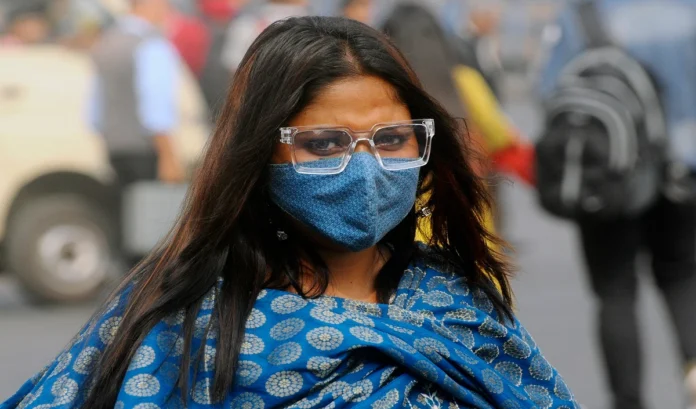According to the Central Pollution Control Board (CPCB), Delhi’s air quality reached ‘very poor’ category on Tuesday, with the air quality index (AQI) recorded at 385 at 8 am. Areas like Anand Vihar, Kalkaji, Nehru Place and Akshardham Temple witnessed a thick layer of fog, causing the city’s air quality to continue to deteriorate.
Ghazipur area also remained foggy, making visibility even worse. The CPCB has categorized the city’s air as ‘very poor’, warning of the potential impact on the health of residents, especially those suffering from respiratory diseases. If weather conditions remain adverse, pollution levels are expected to remain high.
Saif, who is on duty, said, “Everyone faces difficulty in breathing during these months, especially in October, November and December. The government is taking the right steps to stop pollution. The situation in Delhi is such that if timely If the right steps are not taken, there could be a lot of trouble in the future.” Earlier on Monday, the Commission on Air Quality Management (CAQM) had ordered the implementation of Graded Response Action Plan (GRAP-II) in Delhi-NCR after the overall AQI fell into ‘very poor’ category.
According to CPCB’s daily AQI bulletin, the daily average AQI in Delhi was recorded at 310. According to a release from the Ministry of Environment, Forest and Climate Change, “As per the dynamic models and forecasts for weather/meteorological conditions and air quality provided by IMD/IITM, adverse meteorological and climatic conditions are likely to occur in the coming days.” Delhi’s daily average AQI is likely to be in the ‘very poor’ category (AQI 301-400).”
The CAQM sub-committee decided that all actions under Phase II of GRAP for ‘very poor’ air quality should be implemented by the concerned agencies in NCR. This is to prevent the air quality from deteriorating further. With the implementation of the second phase of GRAP, an 11-point action plan is being implemented in NCR. The plan includes mechanical/vacuum sweeping and water spraying on identified roads, thorough inspection at construction and demolition sites and proper disposal of collected dust at designated sites.
CAQM has urged citizens to use public transport, minimize use of private vehicles and regularly change air filters in their vehicles. Citizens have also been advised to avoid dust generating activities and open burning of solid waste and biomass. According to CAQM data, Delhi’s AQI remained around 300 throughout the day on Monday and was recorded at 310 at 4:00 pm.




